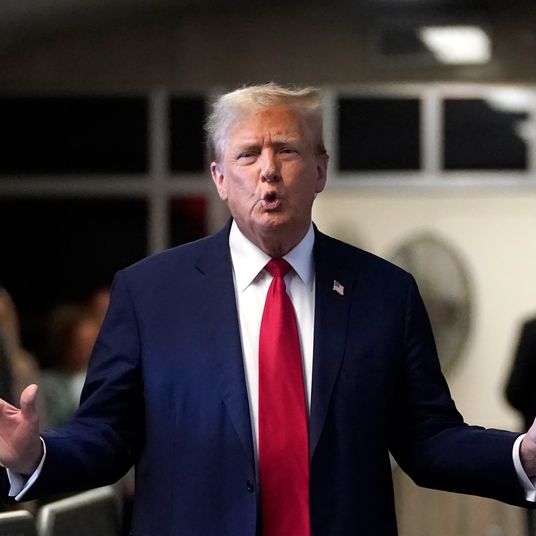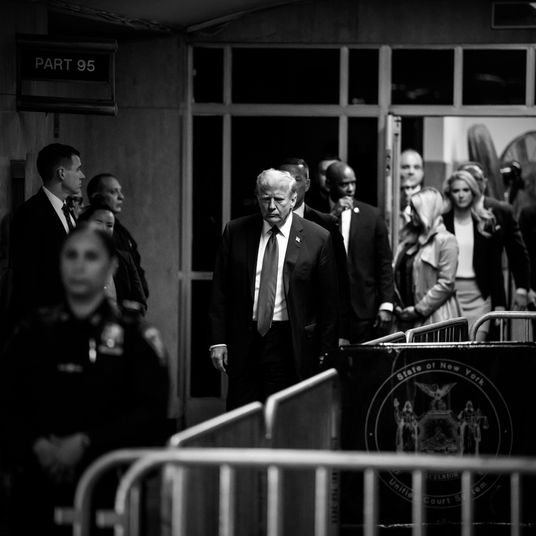
After Stacey Abrams’s narrow defeat in the Georgia governor’s race last year, Democratic voters were forced to confront one of the unsexier culprits for their electoral struggles: Republican control over 25 of America’s 47 secretary of state jobs, particularly in southern and midwestern states with large nonwhite populations. (Alaska, Hawaii, and Utah do not have secretaries of state.) This was especially stark in Georgia, where Brian Kemp — Abrams’s Republican opponent and the state’s current governor — refused to step down from his position as secretary during an election in which he was also a candidate. The result was a race where one of the two main stakeholders simultaneously played the game, made the rules, and oversaw their enforcement. Kemp took advantage by whittling down the electorate, purging 1.4 million voters from the rolls; placing holds on 53,000 registration applications, almost 70 percent of which were filed by black applicants and likely Democrats; and declining offers for federal assistance after election security issues were laid bare across Georgia, instead casting the offers as a conspiracy to undermine local control — namely his own. Now, following a closely watched runoff, his successor is a Republican with a similar agenda: Brad Raffensperger, who defeated Democrat John Barrow for the right to dictate who gets to vote in Georgia, and who doesn’t, for the next three years.
The sneaky importance of the office has prompted calls for action among Democrats that are now being officially answered: The Democratic Association of Secretaries of State, helmed by Alex Padilla, who holds the job in California, has launched an initiative to flip five offices from Republican to Democratic in 2020, according to the Washington Post: Missouri, Montana, Oregon, Washington, and West Virginia. Similar efforts in more traditionally red states will also get the group’s attention: Kentucky, Louisiana, and Mississippi, where the most recent U.S. Senate race went to a runoff between Democrat Mike Espy and now-Senator Cindy Hyde-Smith, a Republican. The secretary-of-state offices that were flipped successfully in 2018 were in Arizona, Colorado, and Michigan.
Padilla’s announcement video echoes the dire language used by voter-suppression critics likening GOP tactics to those used under Jim Crow. “Republican secretaries of state are helping Trump wage a Jim Crow–style assault on our voting rights targeting students, seniors, and people of color with what a federal court called ‘surgical precision,’” he says. (The federal-court quote refers to a 2016 ruling that invalidated a voter-ID law in North Carolina.) It’s a comparison made often, dismissed at times by critics as hyperbolic despite its clear merits — the most obvious being the rush in GOP-governed states to implement restrictive new voting laws that followed the U.S. Supreme Court’s gutting of Section 5 of the Voting Rights Act in 2013. But other practices that flourish under GOP rule are equally anti-democracy. From the de facto poll tax passed recently in Florida, to Majority Leader Mitch McConnell’s refusal to take up a sweeping voting-rights bill that passed the Democratic-controlled House of Representatives, to the frivolous “voter fraud” prosecutions that proliferate in states like Georgia — purportedly to prevent illegitimate votes, which are rare, but mostly serving to intimidate would-be voters — display eerie parallels to practices used in the segregated South. The targets, then as now, are constituencies that tend to vote left of their conservative elected officials: poor people and people of color, especially black people and Latinos, and young people, including students.
Specifics regarding what Padilla’s campaign will entail remain sparse, but one thing a secretary of state race has never boasted is too much attention. Traditionally, it’s a down-ballot consideration whose fortunes follow the more exciting elections happening the same day, like those for governor. Barrow’s chances in Georgia were undermined further by going to a runoff, where only a sliver of the electorate tends to show up. Increasing the importance of secretary-of-state races in the eyes of Democratic voters would be an important corrective to this lack of interest. It would also supplement efforts led by the likes of former attorney general Eric Holder and Abrams herself, who are pursuing Democratic anti-gerrymandering initiatives and multistate “voter protection” campaigns, respectively. Abrams’s strategy in 2018 hinged on mobilizing traditional nonvoters — especially poor people, young people, and nonwhite people. Her planned campaign, Fair Fight 2020, will include voting-rights education and voter-turnout efforts. None of which guarantees an overhaul of the status quo. Secretaries of state are important, but in a place like Mississippi, which has the least-elastic electorate in the country, racial demographics and entrenched partisanship are far more likely to determine the outcome of a statewide race. Nor is renewed emphasis from the top guaranteed to translate into voter excitement.
Still, it’s an effort driven by more than just strategic import. Any push to retain power that requires curtailing the right to vote, narrowing the field of eligible voters, or intimidating and even criminalizing the constituencies of one’s political opponents is unworthy of a democracy. It’s been the Republican way for years and that of white reactionaries long before them. Changing that won’t just be good for Democrats. It’ll be a win for American democracy.






























